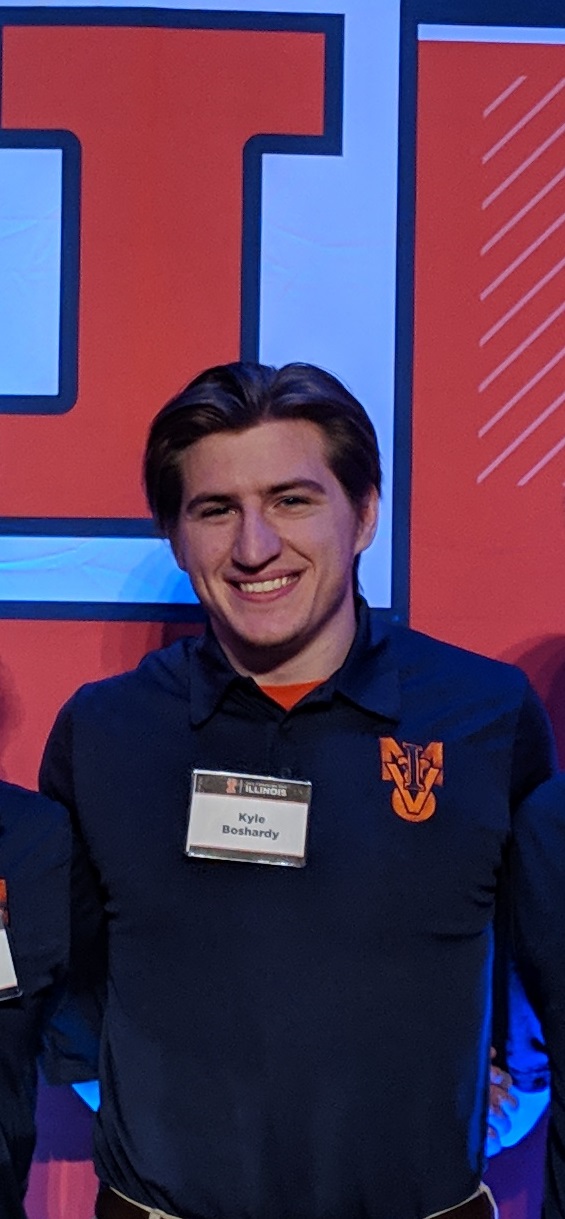
The Anthropology Department has begun to feature promising undergraduates on their webpage. Specifically, they stories of research experiences in department labs, at departmental field sites or with a departmental faculty member via an internship, for example. Features include undergraduates who are very engaged in research, who can see connections between their experiences with research in the department and their future careers, inside or outside the academy. For our first student spotlight, we have Kyle Boshardy!
Bio:
Starting my undergrad in Fall 2014. I was in the Division of General Studies (DGS) when I came to the university. I originally wanted to be in Computer Science, but thankfully discovered it was not what I wanted before I went too far into my undergrad. I reopened my horizons and Anthropology stood out as a liberal arts degree that had significant, intriguing scientific aspects. Coming into Anthro, I was still a little behind in terms of degree progression for Anthropology. So, since I did not want to constantly do 18, or more, hour semesters, stretching my undergrad out to 4yrs and 1 semester was the logical choice for me. Basically, I was a fifth-year senior because of time, not academic mistakes. (In my experience, fifth-year seniors tend to get a bad reputation because of that).
1) When and how did you get involved in your research experience?
In Fall 2017, I took an Ecology elective that briefly covered microbiomes and that was my first exposure to the subject and it immediately interested me due to its relative youth compared to older research topics. In Spring 2018, I was taking Anth 399 – Ethics in the Genomic Era: a second 8-weeks course following the tumultuous ethics of research surrounding human genetics and related research. I discovered that one of the professors teaching the class, Dr. Jessica Brinkworth, has a lab researching immunology, genetics and microbiomes. After talking with her and expressing interest in helping in the lab. Very soon, I was taking trainings and going to lab meetings.
2) What did you do for your research experience?
A part of the Spring 2018 Anth 399 class was a group project on Green Labs in R1 research institutions. As a class, we brainstormed sustainability issues in the lab setting and looked for information on what various labs/organizations did, or did not do, to mediate these issues. When the class ended, Jessica asked if any of the students wanted to continue working with her on this Green Labs project with the goal of publishing a paper on the subject soon; I gladly volunteered. I have helped plan, write, and execute various tasks to show how R1 research institutions, and their labs, can push the boundary of sustainability practices in research beyond what is commonly done. A great example of this is our recent approval of a Student Sustainability Committee Grant to put a sustainability and conservation garden in the back of Davenport Hall. I presented our garden idea in front of the committee and received overall excitement for the project. Collaboration with Facilities & Services and their Sustainability branch continues to help bring this plan to fruition and we are excited to work on it in the Spring.
3) How did the department, your mentor or fellow students play into your research experience?
Jessica is a great mentor and an insightful professor. She has vast knowledge of her fields and can easily explain complex topics to anyone. I have been working closely with her to progress through the Green Labs paper since the beginning of Summer 2018. I have helped in the lab when I can, including performing support and cleanup. The Brinkworth lab is an educational and cooperative atmosphere while also providing a great opportunity to work with a plethora of scientific equipment and learn multiple standard lab operating procedures also performed in other R1 institutions and various scientific institutions. Various research articles are read and discussed in lab with Jessica ready and willing to provide a very knowledgeable explanation when things are more unknown to us.
4) What is the product of your research experience (e.g. other opportunities, knowledge of a subject, a feeling about what you accomplished, did it help you develop a different sense of self or point you in a particular career direction?, did you present your research? etc.)
This research experience teaches me about lab procedure, helps me study complex scientific subjects and methods, gives many networking opportunities, and exposes me to a scientific atmosphere I never thought was possible in my undergraduate career. Having the opportunity of working in a lab enriches my undergraduate experience more than I thought possible.
5) How do you see your research experience informing your career development (e.g. are there transferrable skills, is the experience marketable for your next career stage, do you think it will inform your perception, approach and/or performance in a future job)?
Lab work and scientific research give you many transferrable skills every experienced worker should have: critical thinking, reading comprehension, dexterity, awareness acuity, organizational management, and observational skills. Complex topics are discussed and brought into perspective on a weekly basis. Lab work teaches responsibility and reliability under pressure because you consistently work with dangerous chemicals. There are often five things happening daily in the lab whether it’s wet lab procedures, after-action analysis, or writing. Having an organized mindset will make this experience a lot easier. This experience has been insightful, educational and, most of all, fun. It has helped define my undergraduate education and provided a wonderful end to it as I look onward to grad school and my career after.
Learn more about Kyle's Sustainability Award here:
https://icap.sustainability.illinois.edu/project/davenport-hall-carbon-garden